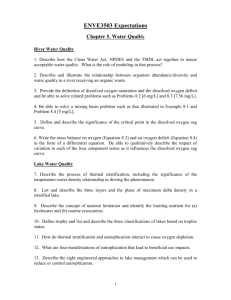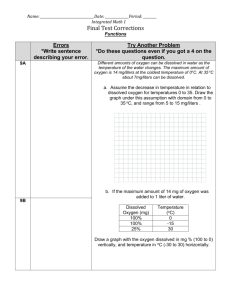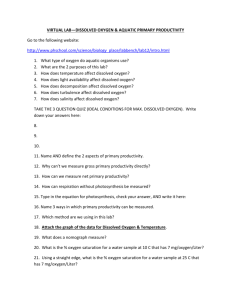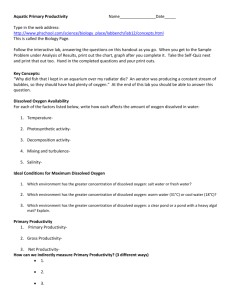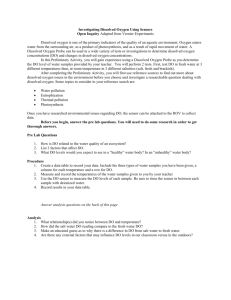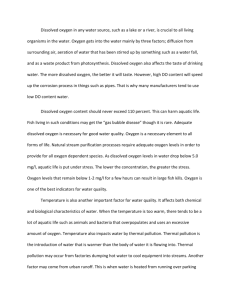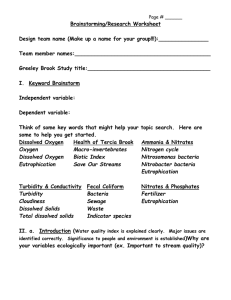EES Nas 2007 Harsit
advertisement
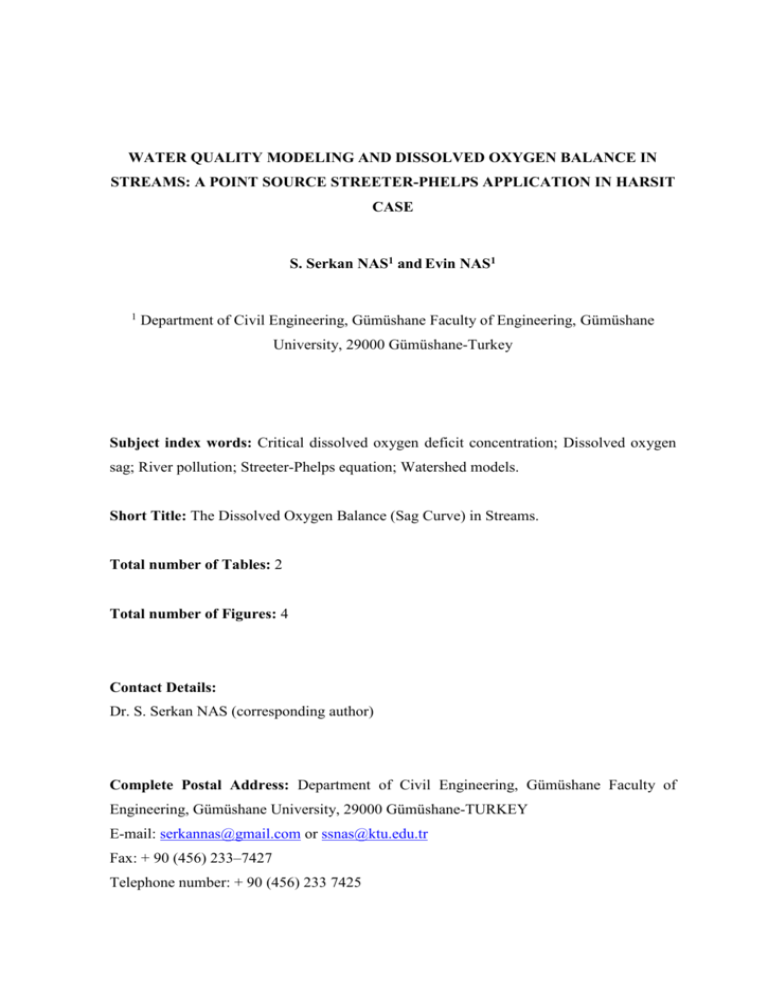
WATER QUALITY MODELING AND DISSOLVED OXYGEN BALANCE IN STREAMS: A POINT SOURCE STREETER-PHELPS APPLICATION IN HARSIT CASE S. Serkan NAS1 and Evin NAS1 1 Department of Civil Engineering, Gümüshane Faculty of Engineering, Gümüshane University, 29000 Gümüshane-Turkey Subject index words: Critical dissolved oxygen deficit concentration; Dissolved oxygen sag; River pollution; Streeter-Phelps equation; Watershed models. Short Title: The Dissolved Oxygen Balance (Sag Curve) in Streams. Total number of Tables: 2 Total number of Figures: 4 Contact Details: Dr. S. Serkan NAS (corresponding author) Complete Postal Address: Department of Civil Engineering, Gümüshane Faculty of Engineering, Gümüshane University, 29000 Gümüshane-TURKEY E-mail: serkannas@gmail.com or ssnas@ktu.edu.tr Fax: + 90 (456) 233–7427 Telephone number: + 90 (456) 233 7425 Water Quality Modeling and Dissolved Oxygen Balance in Streams: A Point Source Streeter-Phelps Application in Harsit Case S. Serkan NAS1 and Evin NAS1 1 Department of Civil Engineering, Gümüshane Faculty of Engineering, Gümüshane University, 29000 Gümüshane-Turkey Abstract The Harsit Stream flowing into the Black Sea is an important watershed in the northeastern part of Turkey. The monthly averages of dissolved oxygen, carbonaceous biochemical oxygen demand, temperature, pH, total suspended solids, total phosphorus and total nitrogen were obtained for the water samples taken from Tekke, Akcakale and Haciemin sites of the Harsit Stream. Water quality parameters were analyzed and evaluated according to the WHO standards and Turkish Water Pollution Control Regulation. At first, variations of dissolved oxygen profile were determined from dissolved oxygen, temperature and carbonaceous biochemical oxygen demand measurements by using point source Streeter-Phelps equation. Critical dissolved oxygen deficit values were calculated for the monthly average from January 2005 to December 2005, which are below the limit value (4 mgL-1) excluding April (7. 26 mgL-1) and May (5.98 mgL-1) in the Harsit Stream having second class water quality in terms of dissolved oxygen concentration, temperature, pH and biochemical oxygen demand. It is also seen that minimum dissolved oxygen limit value (8 mgL-1), which is desired in the drinking waters, is under the limit value in all months in case of a mixture. Particularly during summer months, the consumption speed of oxygen is greater than the production speed of oxygen with increasing temperature and decreasing discharge, and negative values (anoxia) on dissolved oxygen sag are seen. These situations call for significant precautions and treatment. Key words: Critical dissolved oxygen deficit; Dissolved oxygen sag; River pollution; Streeter-Phelps equation; Watershed models.
